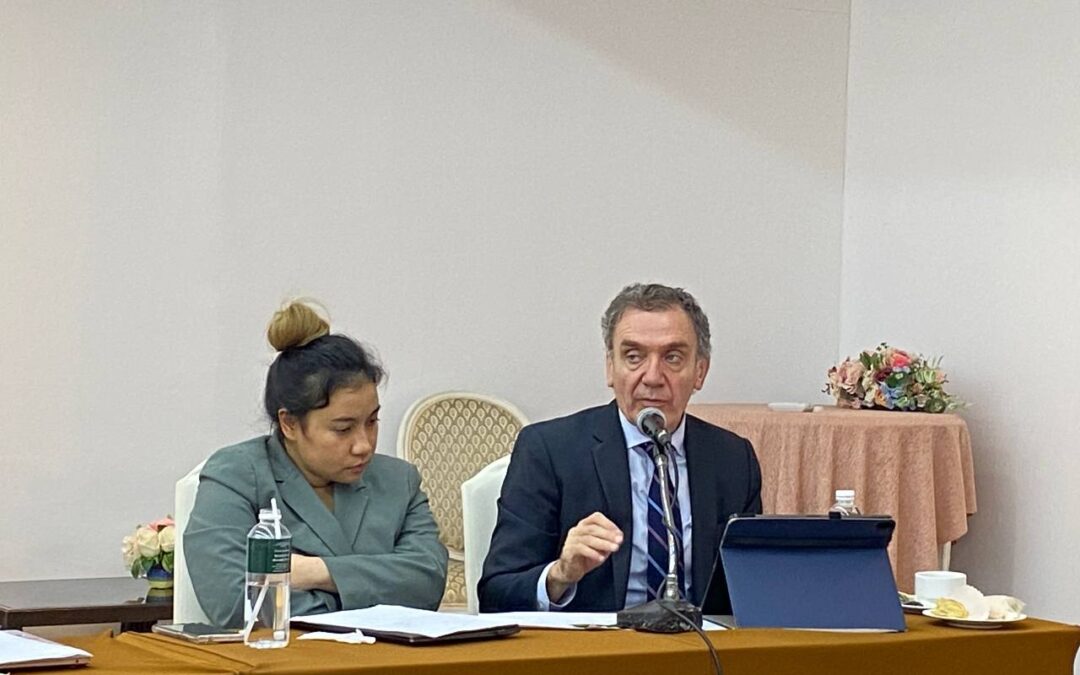
Nov 30, 2023 | Events, News
On 29 November 2023, the ICJ co-hosted a dialogue among Thai lawyers, academics, and Santiago A. Canton, Secretary General of the ICJ to exchange best practices from Latin America, specifically focusing on insights from the Inter-American Court of Human Rights and domestic courts in the region – to address ongoing challenges in litigating cases involving suspected enforced disappearances within Thai courts.
The Dialogue involved challenges encountered in litigating cases of enforced disappearances, particularly in terms of accessing, collecting, and admitting evidence within Thai courts. These challenges are notably complex, especially when the crimes have occurred beyond Thailand’s borders.
Additionally, participants discussed the difficulties related to establishing the responsibility of individuals for these serious crimes and how courts have handled evidence submitted in previous enforced disappearance cases. This included instances where evidence, such as telecommunications, as well as various forensic evidence like biological evidence and DNA evidence, was dismissed, and the failure to identify the perpetrator in cases where the victims’ bodies or remains could not be located.
“The crime of enforced disappearance completely eradicates any trace of the victim, with no acknowledgment by the authorities and no effective investigation. The requirement to locate the disappeared individuals’ bodies and remains contradicts the very nature of the crime of enforced disappearance,” said Santiago A. Canton, Secretary General of the ICJ.
While highlighting that the criteria for evaluating evidence within the Inter-American Court of Human Rights (IACtHR) are less formal compared to domestic criminal legal systems, Canton noted IACtHR’s jurisprudence relevant to the admissibility of circumstantial and indicative evidence, which was particularly instructive as enforced disappearances typically involve deliberate attempts by state officials to destroy direct evidence, aimed at securing impunity.
“The standard of proof in the Inter-American Court of Human Rights allows lawyers, under certain circumstances, to only establish a demonstrable ‘practice’ of enforced disappearances at the time of a specific case. When combined with circumstantial evidence, this can result in a judicial presumption of enforced disappearance,” said Canton.
Participants also discussed the ‘continuous nature’ of enforced disappearance crimes, which are recognized under Thai law and enable cases from the past, where the fate and whereabouts of victims remained unknown, to be prosecutable before the court, notwithstanding the fundamental principle of non-retroactivity.
Closing remarks by Angkhana Neelapaijit, a Member of the UN Working Group on Enforced or Involuntary Disappearances, whose husband Somchai Neelapaijit was a victim of enforced disappearance, detailed the role of the Working Group and the steps taken globally to address the crime.
Background
More than 20 Thai experts, lawyers, and academics, who represent or have experience researching cases of enforced disappearances in Thailand, participated in the discussion.
Thailand’s Act on Prevention and Suppression of Torture and Enforced Disappearance became effective in February 2023. However, its implementation has been slow. The majority of cases involving suspected torture, ill-treatment, and enforced disappearances are still in the investigation phase, and not yet moved into the adjudication phase. Limited information about its progress has been made available to the public.
Prior to the enactment of this new law, only two cases of apparent enforced disappearances reached Thai courts: the case of prominent Muslim lawyer Somchai Neelapaijit and Karen activist Pholachi ‘Billy’ Rakchongcharoen. Unfortunately, these cases concluded with limited success, mainly due to challenges surrounding the evidence submitted to the court.
Contact
Sanhawan Srisod, ICJ Associate International Legal Adviser, e: sanhawan.srisod@icj.org
Further reading
Thailand: a report on the criminal trial and investigation of the enforced disappearance of the Thai human rights lawyer, Somchai Neelapaichit
Ten Years Without Truth: Somchai Neelapaijit and Enforced Disappearances in Thailand
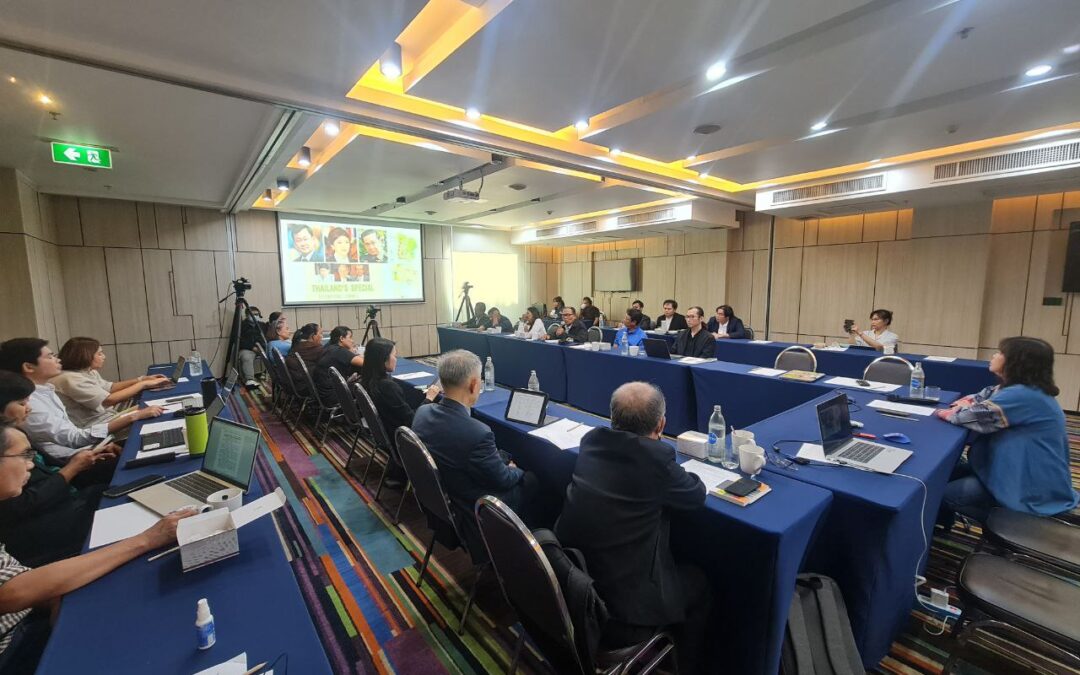
Nov 24, 2023 | Events, News
“The law governing the development of Thailand’s Eastern Economic Corridor (EEC) must be evaluated and revised to address concerns raised by local communities, and align with Thailand’s international human rights obligations,” concluded participants at a dialogue hosted by the International Commission of Jurists (ICJ), Land Watch Thai, EEC Watch, ENLAW Thai Foundation, and Thai Public Broadcasting Service (Thai PBS) in Bangkok, on 22 November 2023.
Participants shared recommendations aimed at improving the Eastern Special Development Zone Act B.E. 2561 (2018) (‘EEC Act’), which governs the operation of the EEC, to better serve the rights and interests of persons in affected communities. These suggestions will be compiled by the organizers and submitted as part of the official consultation process during the 2024 evaluation by the Office of the Eastern Special Development Zone Policy Committee (‘EEC Office’).
The EEC is a special economic zone in Thailand being developed in the eastern coastal provinces of Rayong, Chonburi, and Chachoengsao, along the Gulf of Thailand. Its objective is to promote investment in next-generation industries utilizing innovation and high technology.
“The EEC Act, however lofty are its stated aim, fails to incorporate adequate protection of human rights. While the EEC Act nominally acknowledges international human rights standards such as the United Nations Guiding Principles on Business and Human Rights’ protect, respect, and remedy framework, as well as the principle of promoting and protecting human rights in policy preparation, it fails to provide for adequate means to ensure implementation of these and other human rights standards,” said Sanhawan Srisod, ICJ’s Legal Adviser.
“According to Thai law, the evaluation must achieve goals that include aligning the law with Thailand’s international obligations under international law. Therefore, the EEC Office cannot complete the evaluation process without thoroughly addressing current gaps in compliance,” added Srisod.
The ICJ recommendations presented include the need to incorporate safeguards against forced eviction, in accordance with international human rights law, and to recognize the social, cultural, spiritual, economic, environmental, and political value of land for communities, with special emphasis on the significance for tenant farmers and small-scale food producers. Responsible land-based investments and implementing human rights due diligence are also critical elements.
A survey conducted before the dialogue with 44 affected individuals in Chonburi and Rayong provinces revealed a pattern of practices that fail to comply with Thailand’s international human rights obligations. They include:
- Lack of adequate participation of residents in the consultation process of the EEC Act.
- Absence of representation of locally affected individuals/communities in the Committee overseeing the EEC, primarily composed of governmental authorities and representatives from business sectors.
- The EEC Committee and Office hold overly broad powers without adequate checks and balances.
- The absence of effective grievance and compliance mechanisms within the EEC Office.
- Disregard for the impact of activities on local livelihoods during policy implementation.
- Ineffectiveness and inadequacy of remedies provided for individuals affected by EEC operations.
Participants suggested amending the EEC Act to address these concerns and ensure real participation, inclusiveness, adequate livelihood, a healthy environment, effective remedies, and other human rights of communities in the area.
Additionally, it addressed ongoing litigation initiated by communities challenging town planning within the EEC, specifically challenging the re-designation of agricultural, natural, and environmental reserved zones to industrial zones, which is currently pending before the Central Administrative Court.
Background
The participants comprised 30 affected individuals living in the areas of the EEC and civil society actors. This is the second dialogue following the initial one in June 2023, addressing the same topic.
According to the Act on Legislative Drafting and Evaluation of Law B.E. 2562 (2019), all Thai laws must undergo outcome evaluation at least every five years.
Speakers at the dialogue included:
- Chanchao Chaiyanukit, Former Permanent Secretary of the Ministry of Justice
- Pornpana Kuaycharoen, Land Watch Thai
- Sanhawan Srisod, ICJ
- Saowaruj Rattanakhamfu, Thailand Development Research Institute (TDRI)
- Somnuck Jongmeewasin, EEC Watch
- Sondhi Kodchawat, Environmental Researcher
- Sumitchai Hattasan, Center for Protection and Revival of Local Community Rights
- Supaporn Malailoy, ENLAWThai Foundation
- Sutthikiat Kodchaso, ENLAWThai Foundation
Contact
Sanhawan Srisod, ICJ Associate International Legal Adviser, e: sanhawan.srisod@icj.org
Further reading
Thailand: laws governing development of Eastern Economic Corridor and Special Economic Zones fail to adequately protect human rights – ICJ report
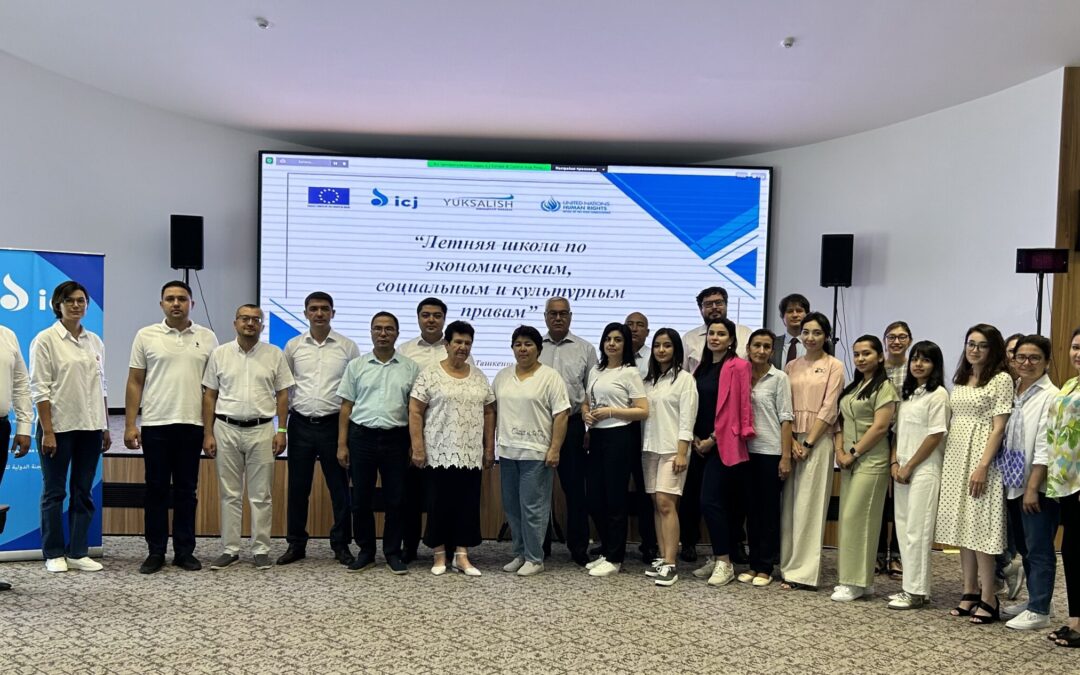
Aug 14, 2023 | Agendas, Events, News
The International Commission of Jurists (ICJ), in collaboration with the Nationwide Movement “Yuksalish” and the UN Office of the High Commissioner for Human Rights Regional Office for Central Asia (ROCA), has announced the launch of the first Human Rights Summer School on Economic, Social, and Cultural Rights (ESCR) in Uzbekistan from 14 to 18 August.
Organized within the framework of “Enhancing the Quality of Uzbekistan’s Application of International Law (EQUAL)”, funded by the European Union, this five-day educational course stands to make a real impact in advancing human rights education in Uzbekistan.
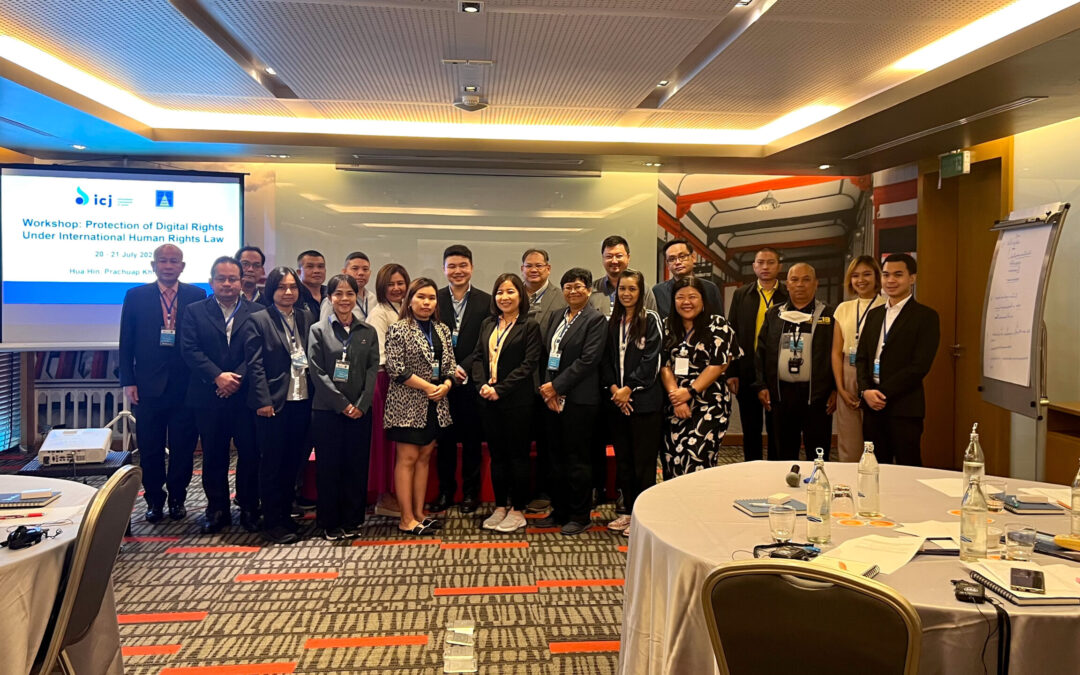
Aug 4, 2023 | Events, News
On 20 – 21 July 2023, the International Commission of Jurists (ICJ) co-organized a workshop, with Thailand’s Ministry of Justice, on ensuring the protection of human rights in the online sphere under international human rights law.
The workshop was aimed at fostering dialogue and action by policymakers and justice sector actors on the exercise of human rights online, with a view to more effective adoption and implementation of laws, policies and practices in line with international human rights law.
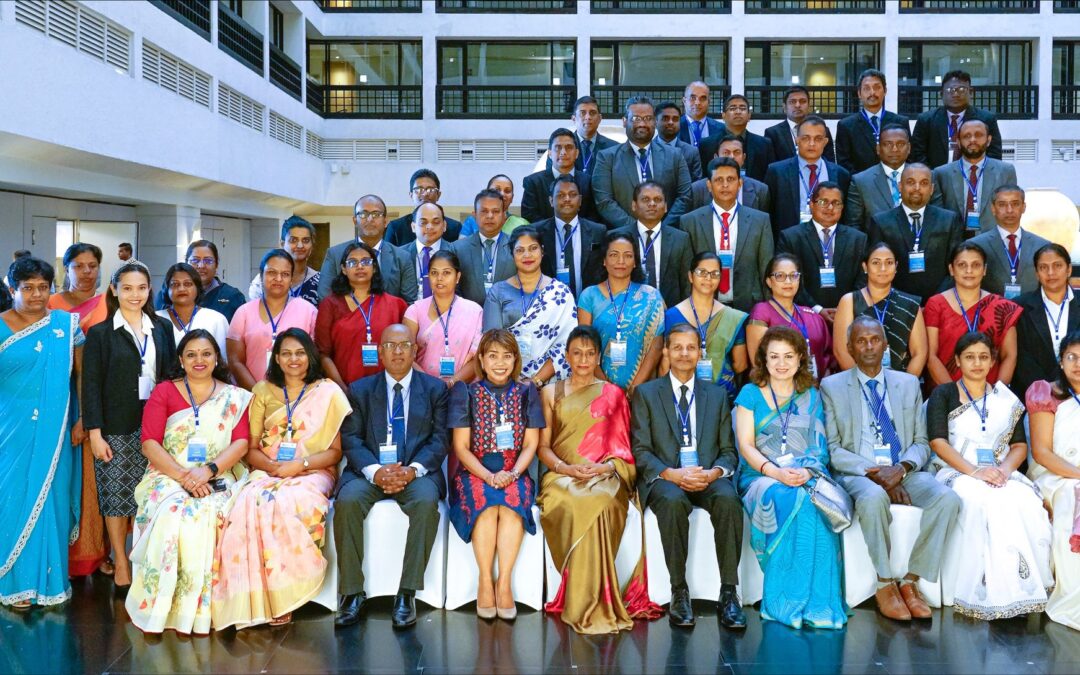
Apr 19, 2023 | Events, News
Sri Lankan judges who participated in the Judicial Dialogue on Access to Justice for Women conducted by the International Commission of Jurists in partnership with the Sri Lanka Judges’ Institute recognized that implicit biases and stereotypes hamper substantive gender equality and discussed ways for these to be countered so as to advance women’s access to justice.

Dec 16, 2022 | Agendas, Events, Uncategorized
On 23-24 January, the ICJ will hold two events in Brussels on the impact of immigration detention on children and on alternatives to detention for migrant children.









